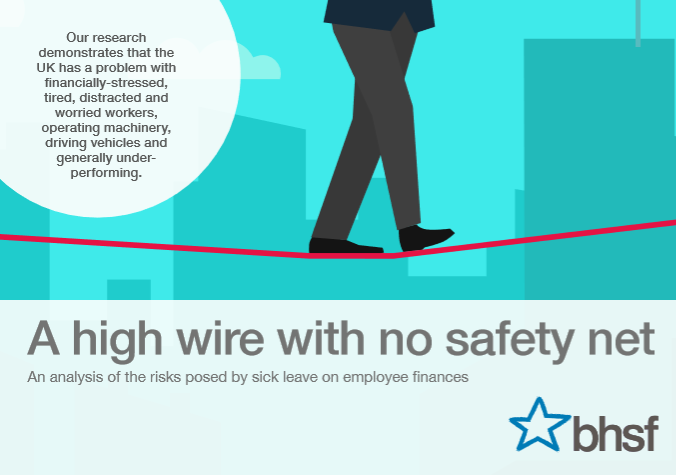Report: A high wire with no safety net
Key findings
- While more than half of the working population say their income has kept pace with their outgoings, 38 per cent say that income, and therefore overall living standards, have decreased.
- More than a quarter of respondents said that short-term financial shocks would be paid for with a credit card, with 10 per cent relying on their family for finance.
- 37 per cent of respondents said that they had no adequate provision in the event of ill-health and would be unable to pay their bills. A further 13 per cent admitted that they didn’t know how long they could survive without a regular income.
- Half of employees, which equates to circa 16 million people, have no sick pay insurance whatsoever.
In his conclusion, Dr Philip McCrea, chief medical officer at BHSF, says: “Yes, short-term absenteeism must be challenged, but long-term absenteeism due to serious health issues must be prepared for, and employers must be brave and play a role [in supporting employees].”
Supplied by REBA Associate Member, BHSF
BHSF is a market-leading health and wellbeing provider.








